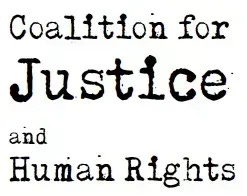When Parents Are Unable, Not Unwilling: Supporting a Young Person in Care
I joined a family at a Children’s Services meeting where they asked to extend temporary guardianship to permanent. The parents want what’s best, but they need help keeping their child safe.
Yesterday I attended a Children’s Services meeting, and my criminology practicum student filmed this moment as part of their experience. It’s a good opportunity to explain what I’m doing and why.
I’m standing beside a young person and their parents as they meet with Children’s Services. The goal of the meeting is to request an extension of the child’s status from temporary guardianship to permanent guardianship. That’s not something we see very often, but it’s the right move in this case.
When “Unable” Is Not the Same as “Unwilling”
This is a situation where the parents are unable—not unwilling—to keep their child safe. That’s an important distinction. Their child struggles with impulsivity and some organic challenges, and honestly, if this were my own child, I might be facing the same circumstances.
That’s exactly why Children’s Services exists. It’s part of the safety net we pay taxes to maintain, to make sure children in our province stay safe and supported when families can’t do it all on their own.
Collaboration, Not Conflict
I don’t expect this meeting to be adversarial. Everyone involved wants the same outcome: safety, stability, and care for this young person. When that’s the foundation, the process can actually be hopeful. I believe today will be a good day for both the family and the child.
Support My Work
As always, I don’t invoice families. I’ve never billed anyone for the support I provide. Everything I do is free for the people I help. That’s why community support means so much. It keeps this work going.
If you’d like to help sustain my work, please consider donating below. Every bit of support helps ensure I can continue showing up for families like this one.





Thank you for making it known that there is a crucial distinction between families who are unwilling versus unable to support a loved one’s medical needs.
Thank you for making it known there is crucial distinction between families unable - versus unwilling - to support a loved one’s medical needs. - VM